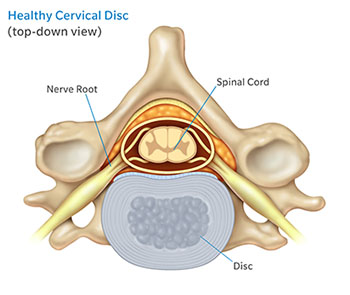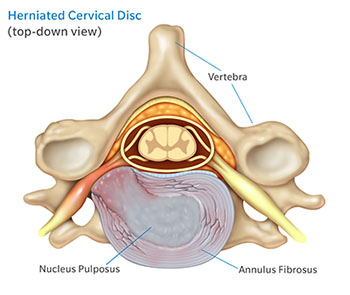In the healthy neck, there is a disc filled with fluid between each bony element of the spine (vertebra). Each disc has a strong outer ring (annulus fibrosus). The outer ring helps keep the disc’s soft center (nucleus pulposus) in place. Disc degeneration can start from over-use, an accident, or just the wear and tear of everyday life.
Once the outer ring of the disc has degenerated and cracked, everyday activities can cause the disc center to leak out. If the outer ring of the disc fully tears or splits, the gel-like center can squeeze out. Disc herniation, also called a disc bulge or a ruptured disc, shrinks the space between the vertebrae.


What are symptoms of disc herniation?
When the disc center bulges beyond its natural location, the disc may press on a nerve root and/or the spinal cord. Loss of disc height can also cause pressure on nerve roots and the spinal cord. This pressure can cause pain, numbness, and weakness in your neck, shoulders, or arms. The type and location of pain depend on which disc has herniated and how the nerve root and/or spinal cord is pinched (compressed).